Restore Windows 10/8/7 System Image to New/Different Computer
Can I Restore A System Image to A New Computer?
You can't directly restore a system image from one computer to another with dissimilar hardware. However, you can use a tool like Acronis True Image or Macrium Reflect to clone the system image to a new computer with similar hardware. If the hardware is significantly different, you can use a tool like Clonezilla to create a bootable USB drive and clone the system image to the new computer. Alternatively, you can use a tool like EaseUS Todo PCTrans to transfer the system image to the new computer. However, keep in mind that you might need to reinstall some drivers and software after transferring the system image. It's also recommended to create a new user account on the new computer and transfer the user settings and files to the new account. This will ensure a smooth transition and minimize any potential issues.
When You Need to Restore System to A New Computer
Restoring a Windows system image to a new computer is often necessary due to various reasons. The primary motivation is to transfer or migrate the system to a new device, allowing users to retain their operating system, installed applications, and personalized settings. This can be especially useful when upgrading to a newer computer, as it saves time and effort in reinstalling software and configuring settings from scratch.
1. The computer gets old and hardware fails
When a computer ages or experiences hardware failure, it can lead to issues such as data loss and system crashes.
A timely, cost-To combat the issue of a PC being infected with malware, a simple yet effective solution is to replace the old PC with a brand-new one featuring dissimilar hardware. This approach ensures that the malware cannot be easily transferred to the new device, effectively breaking the malware's hold on the system.
To restore a system image and data backup to a new computer with different hardware can be a challenge, making it crucial to have a quick solution to avoid data loss and system crashes on your old PC.
2. System transferring or migration without reinstalling Windows
Restoring the system to a new computer is also known as recovering or migrating OS to dissimilar hardware, allowing you to transfer and restore a complete Windows-based system image to a new computer without reinstalling Windows OS.
Important
If you can't find a computer that exactly matches your old one or need to upgrade to different hardware, a reliable system backup and restore software can be a big help in keeping your system stable and secure.
How to Restore Windows 10/8/7 to A New computer (with Dissimilar Hardware)
A professional backup software with the ability to restore to dissimilar hardware enables users to easily restore their system to a different hardware configuration, making it a valuable feature for those who need to upgrade or replace their computer hardware.
First, choose system backup software for system transfer
Qiling Backup is a tool that allows you to back up your Windows system and restore it to a different hardware platform, such as a different processor, motherboard, or mass storage device, and still have it boot normally.
With it, you can complete the following operation:
- Instant recovery from a failed hardware after disaster strikes, without having to find an exact match for the original system specifications.
- Upgrade or migrate the system to a new different computer.
- Save time for system deployment with hardware independence.
Here are some important tips for you to keep in mind before starting your task:
- To ensure the safety of your important data, it is also necessary to backup or copy it to an external storage device.
- Creating a system backup should be the first step to transfer and restore a Windows system image to a new computer.
Second, restore the system image to a new computer
To restore a Windows system backup to dissimilar hardware, follow these steps: First, ensure that the backup is compatible with the new hardware. Next, boot from the Windows installation media and select the "Repair your computer" option.
Step 1. Create an emergency disk on a healthy computer
To save time and energy, create an emergency disk on a USB or external hard drive instead of a healthy computer with Qiling Backup.
1. Connect an empty USB flash drive or external hard drive with over 100GB of space to your PC.
2. Run Qiling Backup and click "Tools > Create bootable media".
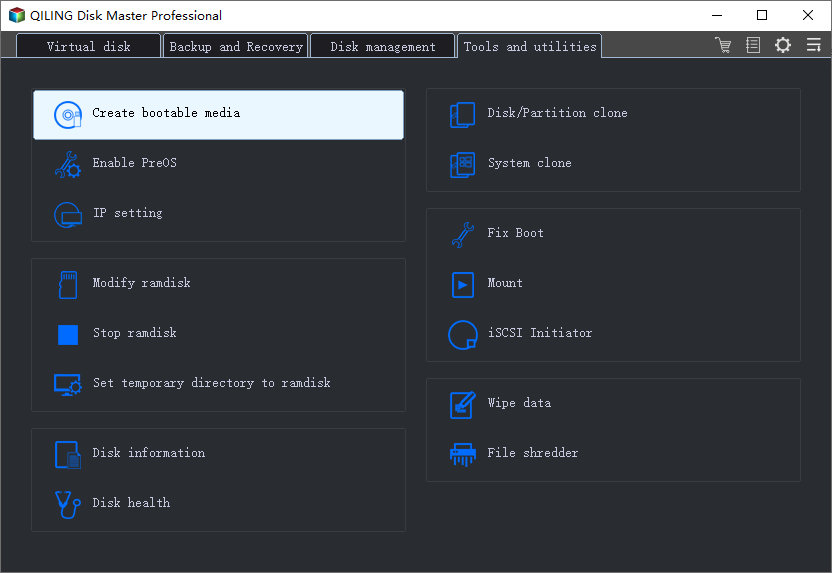
3. Create an emergency disk on a USB drive to help boot your computer when it fails to boot or restore the system to a new PC with a different hardware configuration.
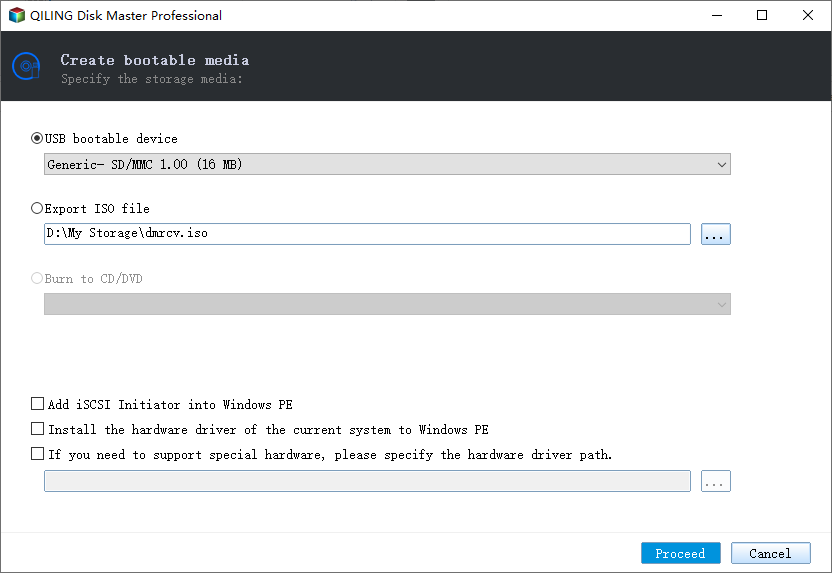
4. Click "Proceed".
Step 2. Create a Windows system image backup for restoring to dissimilar hardware
1. Run Qiling Backup on the healthy computer and click "System Backup" on the top pane.
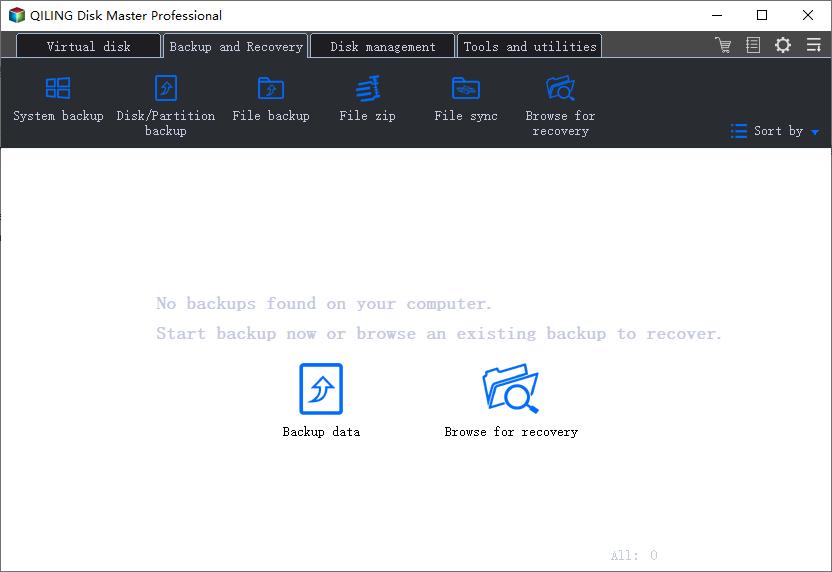
2. To create a system image on a Windows OS, select the Windows OS as the source and specify the USB flash drive containing the emergency disk as the destination disk to save the system image.
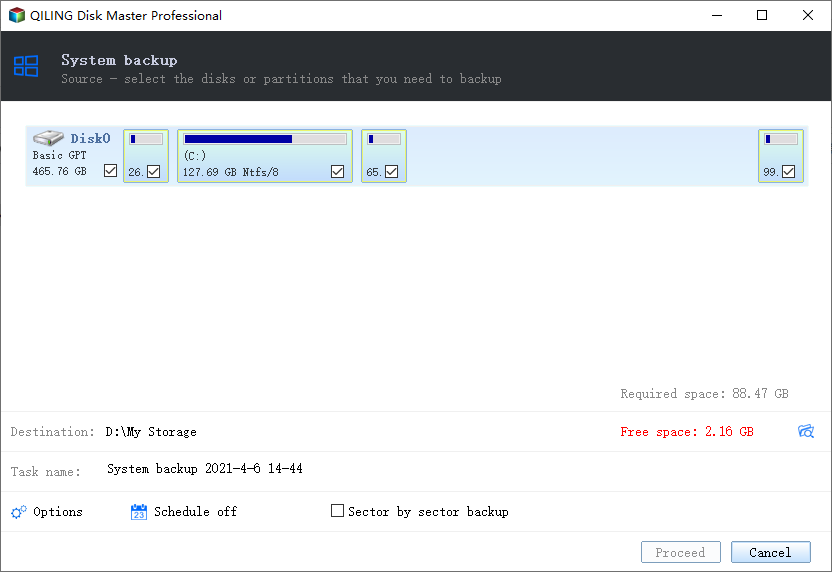
If you're concerned about losing data by saving the system image to an emergency disk drive, you can also save the system backup to another empty external hard drive with over 100GB of free space.
This will create a full backup of your entire Windows system and all installed programs and applications on your C drive to the selected device.
3. To create a system backup image to the target device, click "Proceed".
Step 3. Boot the dissimilar hardware/computer from Qiling Backup emergency disk
1. Connect the USB flash drive or external hard drive with the system backup image and emergency disk to the new computer.
2. Restart PC and press F2/F8 to boot into BIOS.
3. To resolve the issue, change the boot drive and set the computer to boot from the Qiling Backup emergency disk. This will likely involve accessing the computer's BIOS settings, selecting the correct drive as the primary boot device, and saving the changes.
Then you'll enter Qiling Backup main interface.
Step 4. Transfer and recover the system to dissimilar hardware or new computer
1. On the main window of Qiling Backup, click "Backup" and then select "Browse for recovery".

2. Select the system image on your drive and click "OK" to continue.
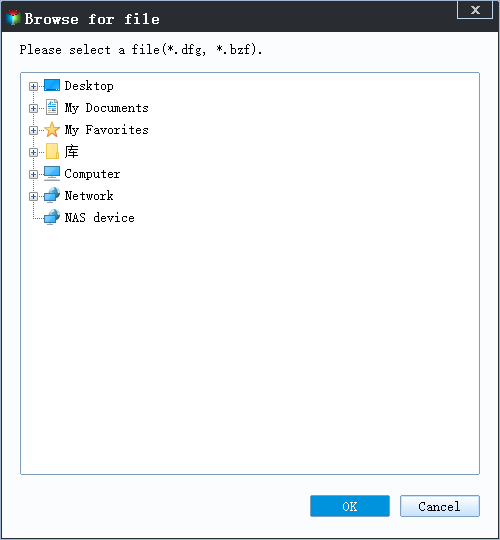
3. Select the system disk and check the "Universal Restore" option, then click "Next" to proceed.
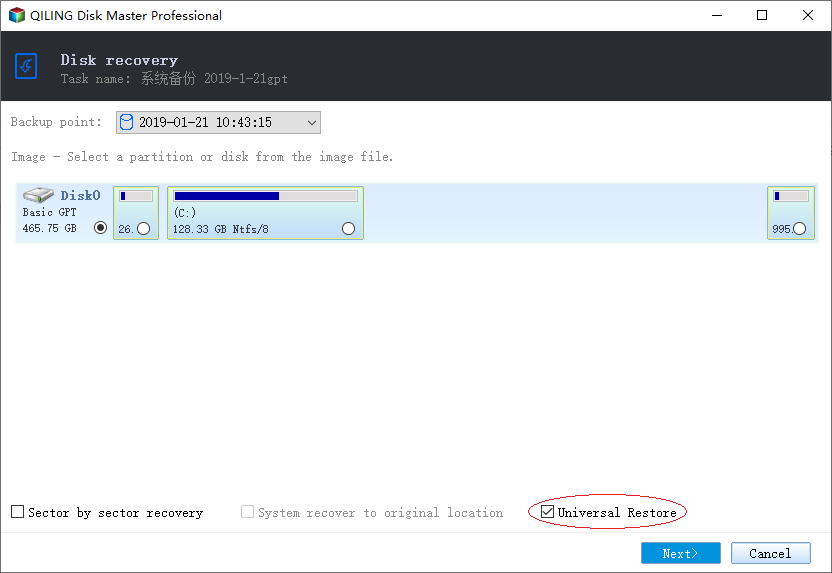
4. Select the destination disk and click "Next" to continue.
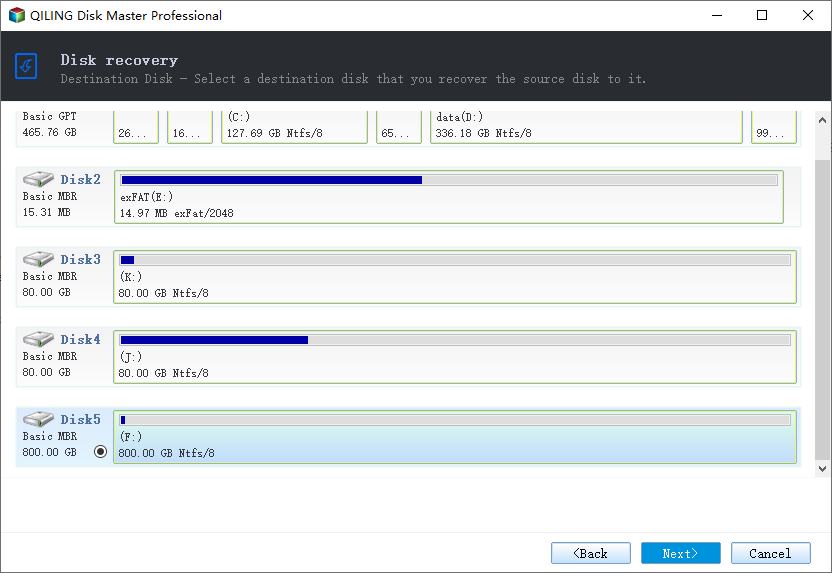
5. Click "Proceed".
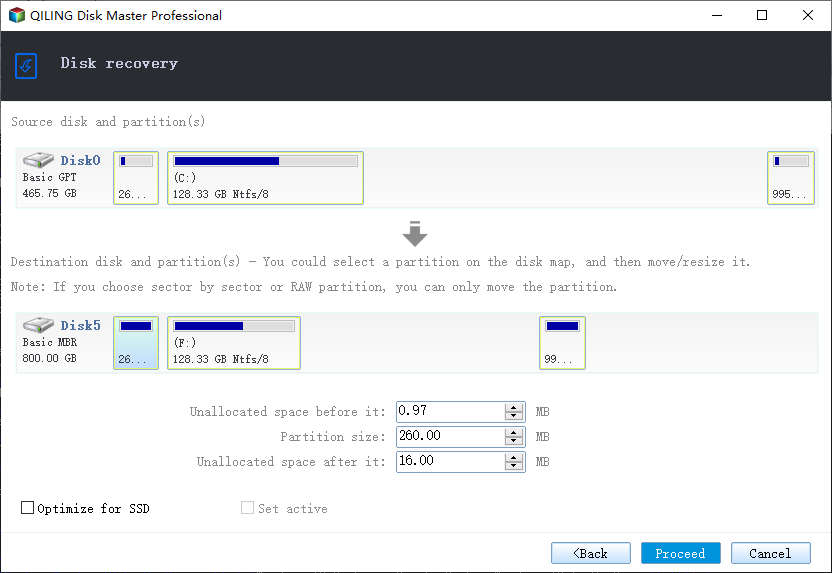
Step 5. Restart PC with transferred system
1. To set the computer to boot from the transferred system, you'll need to change the boot sequence in the BIOS settings. This involves entering the BIOS settings by pressing a specific key (usually F2, F12, or Del) as the computer starts up, navigating to the boot order section, and selecting the drive with the transferred system as the primary boot device.
2. To ensure a smooth transition to the new computer, update all drive drivers and programs to the latest versions. This will guarantee that all hardware and software components function correctly and efficiently on the new device.
Related Articles
- Windows recovery & backup software to recover your files or folders
- How to Backup Windows Data to QNAP NAS Drive
- How to Install Software on Multiple Computers at the Same Time
- How to Migration OS to dissimilar hardware
- Transfer Windows 10 Installation to New Hard Drive